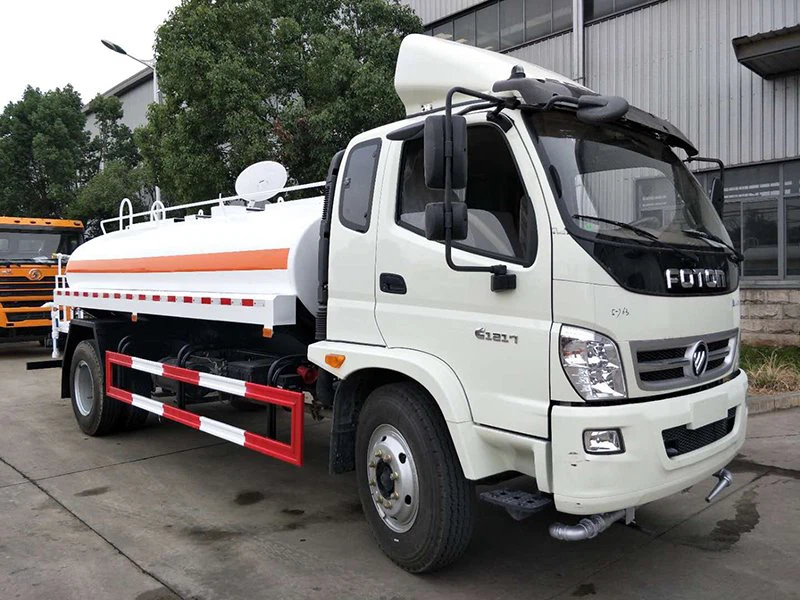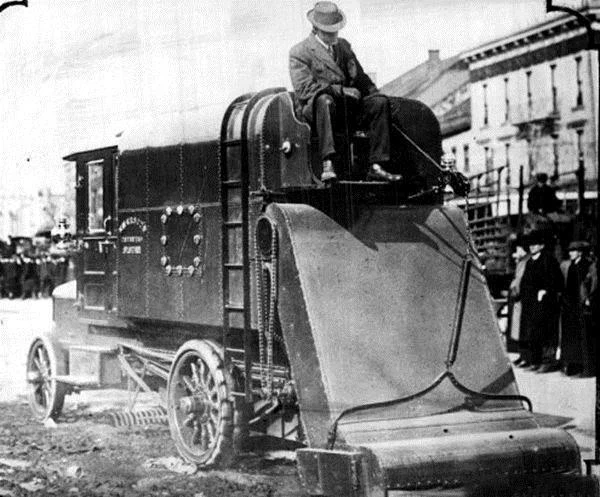New Garbage Trucks for Sale: Your Complete Guide

In today’s world, the efficiency of waste management has become crucial to keeping our communities clean and sustainable. The backbone of effective waste disposal is the garbage truck. When considering environmental impact, efficiency, and cost-effectiveness, purchasing a new garbage truck is a significant step for municipalities and private waste management companies alike. This article will guide you through everything you need to know about new garbage trucks for sale, including types, features, pricing, and important purchasing tips.
Understanding Garbage Trucks
What is a Garbage Truck?
A garbage truck, also known as a waste collection vehicle, is designed to collect solid waste and transport it to disposal sites. They come in various sizes and types, each serving specific needs. Understanding the purpose of these vehicles is vital for making an informed purchase.
Types of Garbage Trucks
The market offers several types of garbage trucks, each suited for different waste collection tasks:
1. Rear-Loader Trucks
Rear-loader trucks are a popular choice for residential waste collection. With a compaction mechanism at the back, these trucks allow workers to load waste from the rear, ensuring efficient collection of curbside waste.
2. Front-Loader Trucks
The front-loader trucks are primarily used for commercial waste disposal. They feature hydraulic arms that lift and dump waste containers from the front, making them ideal for frequent commercial waste pickups.
3. Side-Loader Trucks
Side-loaders can either be manual or automated. They collect waste from the side of the truck, often utilizing robotic arms for efficiency. This type is becoming increasingly popular due to its operational efficiency.
4. Roll-Off Trucks
These trucks are designed to transport large, open-top containers and are ideal for construction sites or large clean-up projects. They are versatile and capable of handling a variety of waste types.
Key Features to Consider When Buying a New Garbage Truck
1. Capacity and Size
The capacity of the garbage truck will directly impact its efficiency. Consider the volume of waste to be collected and opt for a size that can manage the demands of your routes. Here’s a quick guide to typical capacities:
| Type of Truck | Typical Capacity (Cubic Yards) |
|---|---|
| Rear-Loader | 10-30 |
| Front-Loader | 20-50+ |
| Side-Loader | 15-30 |
| Roll-Off | 20-40+ |
2. Fuel Type
Garbage trucks primarily run on diesel, but alternative fuels like compressed natural gas (CNG) or electric options are gaining traction. Consider emissions regulations and total cost of ownership when selecting a fuel type.
3. Safety Features
Safety should always be a priority. Modern garbage trucks come equipped with features such as rear cameras, collision detection systems, and blind-spot monitoring. Ensure that the model you choose meets your local safety regulations.
4. Maintenance and Durability
New garbage trucks can be a significant investment; therefore, choosing a model known for durability can save costs in the long run. Research the manufacturer’s reputation and consider warranties offered.
Pricing Considerations for New Garbage Trucks
Factors Influencing Price
The cost of new garbage trucks can vary significantly based on various factors:
- Type of Truck: Front-loaders and roll-offs tend to be more expensive than rear-loaders.
- Manufacturer: Brand reputation affects price; well-known brands may charge more.
- Customization: Additional features or custom designs will increase costs.
- Technology: Advanced technology and automation options can also add to the price.
Average Price Ranges
While prices fluctuate based on the factors above, here’s a general breakdown:
| Type of Truck | Price Range (USD) |
|---|---|
| Rear-Loader | $100,000 – $300,000 |
| Front-Loader | $200,000 – $400,000 |
| Side-Loader | $150,000 – $350,000 |
| Roll-Off | $150,000 – $300,000 |

Where to Buy New Garbage Trucks
1. Authorized Dealers

Purchase from authorized dealers for reliability and better service. These dealers often provide the latest models and financing options.

2. Online Marketplaces
Websites like Truck Paper and Equipment Trader offer a wide selection of new and used trucks, allowing for easy comparisons.
3. Industry Trade Shows
Attending waste management trade shows and expos can give you hands-on experience with different models and direct access to manufacturers.
4. Auctions
Government and industry auctions can offer significant savings on new garbage trucks. However, it’s essential to do thorough research before participating.
Financing Options for Garbage Trucks
1. Bank Loans
A traditional method, bank loans can help businesses manage larger purchases by providing credit with interest.
2. Leasing Options
Leasing can be a good alternative, enabling companies to access new trucks while preserving cash flow. At the end of the lease, companies may have an option to purchase the truck at a residual value.
3. Manufacturer Financing Programs
Many manufacturers offer financing programs that may come with attractive terms, potentially reducing overall costs.
Maintenance Tips for New Garbage Trucks
1. Regular Inspections
Establish a routine maintenance schedule to ensure all moving parts are functioning correctly. This includes checking hydraulic systems, tires, and braking systems.
2. Keep Records
Maintain comprehensive records of all maintenance and repairs. This documentation can help identify patterns that may indicate larger issues down the line.
3. Staff Training
Ensure that operators are well-trained in the proper use and maintenance of the truck. Proper handling can prevent unnecessary wear and tear.
4. Use Quality Parts
When replacement parts are needed, choose high-quality components. They may offer a higher initial cost but can save money on repairs in the long run.
Environmental Considerations
1. Emissions Standards
Garbage trucks are subject to emissions regulations. Familiarize yourself with local guidelines to ensure compliance and avoid penalties.
2. Eco-Friendly Options
Consider investing in CNG or electric garbage trucks to reduce environmental impact. Although they may have higher upfront costs, they can lead to savings in operational costs.
3. Recycling Features
Some new garbage trucks come equipped with compartments for dual-stream recycling, promoting responsible waste management.
FAQs about New Garbage Trucks for Sale
1. What is the average lifespan of a garbage truck?
The average lifespan of a garbage truck ranges from 10 to 15 years, depending on maintenance and usage.
2. Are there financing options for new garbage trucks?
Yes, financing options include bank loans, leasing, and manufacturer financing programs to make purchasing easier.
3. Do new garbage trucks come with warranties?
Most new garbage trucks include warranties that cover specific components and can vary from manufacturer to manufacturer.
4. How do I maintain a new garbage truck?
Regular inspections, keeping detailed maintenance records, training operators, and using quality parts are essential for effective maintenance.
5. Where can I find the best deals on new garbage trucks?
Authorized dealers, online marketplaces, trade shows, and auctions typically offer competitive pricing on new garbage trucks.
6. What are the latest trends in garbage truck technology?
Current trends include the rise of electric garbage trucks, automated loading systems, and advanced safety features to enhance driver safety and efficiency.
